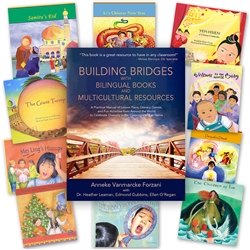The bond between a child and a parent is special. For every parent, their child is always a priority. You want your child to have a fulfilling, happy life. And good friends are crucial for that. It is vital to help your child understand the value of good friendships from a young age. To make sure your child wears the shoe of a good friend themselves, you must ensure they speak the language of kindness, acceptance, and empathy.
How do you do that?
Culturally responsive teaching is an effective way, whether your child goes to a school or is homeschooled. So, when your ten-year-old wonders why the new student in their class does not have the same accent as them or why the neighbor has to use a wheelchair to move around, teach them to respect differences and not be alarmed by them.
There are so many things you can do to ensure your child understands and values good friendships. You can read them books that talk about diversity. If you are looking for good reads, the 11-Book Diversity Set by Language Lizard, LLC is an assortment of Teacher’s Guide, Diversity Activities, Lesson Plans, and ten multicultural books. You will be providing your child an inclusive learning environment that will encourage them to build positive connections with children from diverse cultures.
Here are some other things you should do to ensure your child values friendships and becomes a good friend:
Always be Honest and Empathetic
Empathy, honesty, and trustworthiness are important characteristics of a good friend. Talk to your child about these qualities. Preaching is not enough. You must practice what you preach too. Your child will be motivated to let these principles lead them in their interactions with their friends.
Talk to Them about Friendship Expectations
The greatest friendship lesson a child can be taught is appreciating their friends despite the differences; for who they are. Culturally responsive teaching is crucial for the same. A good friend is someone who is there when his/her friends need them without grand expectations.
Be a Good Friend
If you want your child to be a good friend, be a good friend yourself. When your child sees how you keep in touch with your friends, are there for them when they need any help and are always compassionate and kind to them, they will learn from you and follow suit.
Build Their Confidence
What are good friendships all about? They are about sacrifice and reciprocation. They are about adding value to someone’s life, sharing the pain, and experiencing joy together. And to do all those things, your child first needs to be confident in themselves; have good self-esteem.
So, appreciate their hard work, celebrate their successes, and tell them you are proud of them. By working on their confidence, you are preparing them to be good friends.
Final Words
Always look for entertaining and impact-making ways to teach your child the value of good friendships and what it is like to be a good friend. What better way than a good book? Explore the selection of multicultural books at Language Lizard, LLC for culturally responsive teaching at home.
Your child will learn to respect and welcome diversity in their friend circle and in any social setting.
















